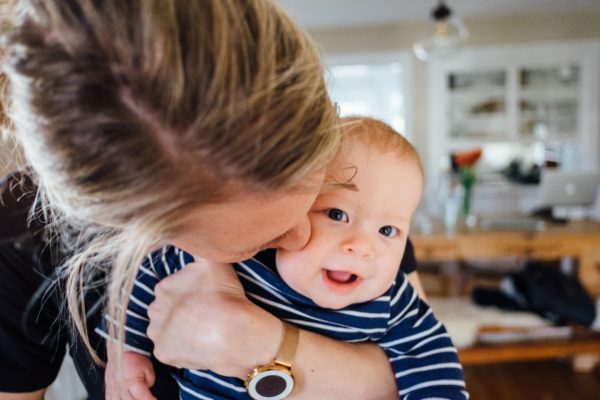
Caring Responsibilities Force Many Women to Choose Between their Family and their Finances

Caring responsibilities are forcing women to choose between their families and their finances, research by Fidelity International shows.
According to the study, close to half (46%) of all UK women currently care for a loved one. When faced with the decisions of how to fit work around caring for their families, be those children or adult relatives, 50% of these women have altered their career in some way and nearly a fifth have gone part-time or reduced their hours.
With only 14% having flexible working hours arranged with their employer, nearly one in three women with caring responsibilities have had to take a pay cut or a reduction in income, while one in ten have had to leave their jobs completely. As a consequence, a staggering 90% of these women experience changes to their finances, with nearly half (42%) having to cut back on everyday spending.
Subsequently, women are left with less money overall to protect their livelihoods or invest for the future. A quarter of women with caring responsibilities said they had reduced the amount they saved or invested. A further 13% reduced their pension contributions.
Maike Currie, investment director at Fidelity International, comments: “Having caregiving responsibilities shouldn’t mean women have to sacrifice their financial independence. Yet all too often, the first consideration for anyone providing care – whether for young children, older parents, or others they may support – is how they will juggle work and caring responsibilities. Many women end up sacrificing their careers to support their families.
“Having to make this compromise can have a domino-like effect, impacting progression to more senior roles, pay rises, and financial security, and exacerbating gender wealth gaps. The best gift you can give your long-term finances – your savings, investments and pensions – is time to grow. Time is the most valuable force in investment and many women forced to choose between family and finances, sacrifice this.”
Fidelity’s research found that caring for children or relatives significantly reduced the financial independence of the women surveyed. Almost a third (30%) had to rely on their partner’s income, while almost a fifth (18%) made a big lifestyle change such as putting off a financial goal.
Maike Currie continues: “It’s important to be aware of how taking time away from work or changing careers to take care of family can impact your finances. Research shows that half of women will provide care by the age of 46.2 The gender pension gap is exacerbated by factors such as a career break, but there are steps you can take to ensure your own financial independence. This includes increasing pensions contributions upon returning to work, or a partner contributing towards your pension during a career break.
“Flexibility within the workplace supported by government legislation is also crucial in preventing those with caregiving responsibilities having to make difficult decisions, such as taking significant pay cuts or leaving their careers. Meanwhile, employers who can provide greater flexibility and support employees’ financial wellness and independence will be rewarded with better staff retention.”













































